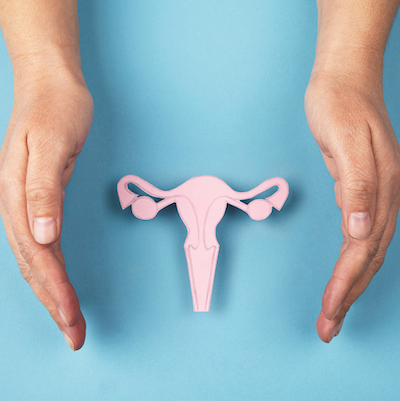 Cervical cancer is a common cancer that occurs when abnormal cells begin to grow in the cervix. Several factors can put women at risk, but the main cause of cervical cancer is a persistent infection by the Human Papillomavirus (HPV). While about 90% of women clear the cervical HPV infection on their own, there is a small percentage of women in which the virus will persist and lead to pre-cancer and cancer.
Cervical cancer is a common cancer that occurs when abnormal cells begin to grow in the cervix. Several factors can put women at risk, but the main cause of cervical cancer is a persistent infection by the Human Papillomavirus (HPV). While about 90% of women clear the cervical HPV infection on their own, there is a small percentage of women in which the virus will persist and lead to pre-cancer and cancer.
Compared to most other cancers, cervical cancer can usually be prevented through HPV vaccination and screening. However, these screenings are not always easily accessible to patients, and many are unaware of the importance.
The Marnix E. Heersink School of Medicine Department of Obstetrics and Gynecology (OB/GYN) and O’Neal Comprehensive Cancer Center (OCCC) at UAB are consistently working toward eliminating cervical cancer as a public health problem through cancer screening accessibility, public awareness, and innovative research.
Cancer Screening Accessibility and Awareness
According to the The American Cancer Society Guidelines for the Prevention and Early Detection of Cervical Cancer, women between the ages of 25 and 65 should get screened for cervical cancer. However, many women do not have easily accessible means to acquire these screenings based on where they live.
The Office of Community Outreach & Engagement at the OCCC has a collaboration with the At-Home Cervical Cancer Screening Study to assess the feasibility of a home-based, self-collected HPV testing kit. The long-term goal of the study is to improve cervical cancer screening among medically underserved women in Alabama.
Lack of awareness is another contributing factor to women not receiving cervical cancer screenings or the HPV vaccine. To combat this, the Department of OB/GYN and the OCCC are both partners in Operation Wipe Out.
Operation Wipe Out is a partnership of several organizations to eliminate cervical cancer as a public health problem in Alabama. In addition to the Department of OB/GYN and the OCCC, other partners in the initiative include The Rotary Club of Birmingham, The Rotary Club of Lafayette, Auburn University School of Nursing, TogetHER for Health, Quality of Life Health Services, and the Alabama Department of Public Health. These organizations and concerned citizens have come together to end cervical cancer as a public health problem in the state by building awareness of HPV and cervical cancer, engaging communities, and bolstering access to cervical cancer prevention through educational events and screening opportunities throughout Alabama.
Inaugural Cervical Cancer Summit
In September 2022, the Department of OB/GYN hosted a Cervical Cancer Summit in collaboration with the OCCC and Alabama Department of Public Health as an effort to tackle cervical cancer in Alabama.
Alabama has the highest death rate from cervical cancer in the United States, and the summit addressed this problem. Around 70 primary care providers from across the state attended the event.
The summit encouraged dialogue among academicians, frontline health care providers, and public health leaders with the goal of creating a comprehensive and collaborative plan that engages all health care providers in Alabama with an end goal of creating a plan to eliminate cervical cancer as a public health problem in the state.
Innovative Research
As a founding member of the National Cancer Institute (NCI) funded Gynecologic Oncology Group (GOG), the Department of OB/GYN’s Division of Gynecologic Oncology offers patients access to cutting edge clinical trials sponsored by the NRG Oncology/GOG and other leading pharmaceutical companies. The division also currently holds, in collaboration with Johns Hopkins, the only NCI funded Cervical Cancer Special Program of Research Excellence (SPORE).
Members of the OCCC and Department of OB/GYN are involved in ongoing research related to cervical cancer prevention and control. In addition to local research, many studies involve countries from around the globe, including Brazil and Sri Lanka.
To learn more about the O’Neal Comprehensive Cancer Center at UAB and its efforts, click here. To learn more about the Department of OB/GYN’s Division of Gynecologic Oncology, click here.